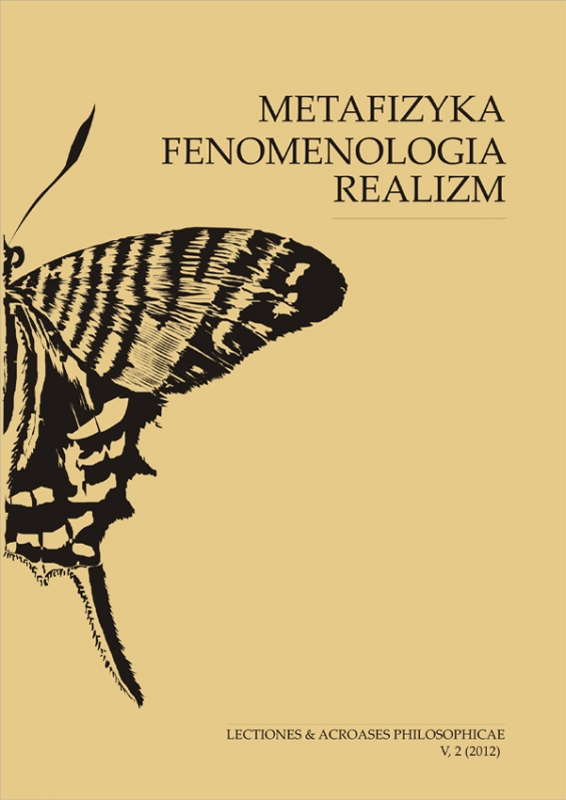Kategoria a priori w fenomenologii Mikela Dufrenne’a
Abstrakt
Notion of a priori in Mikel Dufrenne’s phenomenology
M. Dufrenne, in opposition to Merleau-Ponty, is not a philosopher well-known in Poland. But his concept of experience, sentiment and bodily cognition is crucial to the contemporary phenomenology of the sensuous. Dufrenne’s notion of a priori and the analysis of its status, functions and possibilities seems especially important. A Dufrenne’s idea of a priori better understood in a historical context of mainly Kant’s, Husserl’s, Heidegger’s or Merleau-Ponty’s reflection on the essential dualism and reciprocity between the rational and the sensuous, broadens the modern philosophical reflection on perception and its rational claims. M. Dufrenne thoroughly creating a specific to himself metaphoric and engaging philosopical terminology describes the subjective and objective material,bodily, existential, universal or affective ones conditions of possibility of human perception and cognition, enrooted in the sensuous. He draws special attention to the mediating function of imagination, being a medium between body and mind, presence and absence, perception and idea, reception and creation of the the object of experience, etc. Having elaborated a „virtual knowledge” idea, he establishes Nature or „the originary” as a fundamental base for any kind of experience and communication. This sensuously deepened image of human possibilies of cognition implies a renewed idea of aesthetics as a science of the sensuous, as well as a panaesthetic conception of esthetisation of re-making the world and oneselves, inaugurated by human activity of experience and the urge for knowledge starting with a philosophical wonder. Everything begins with perception — like M. Merleau-Ponty said, and finishes with aesthetics — like M. Dufrenne suggests.

